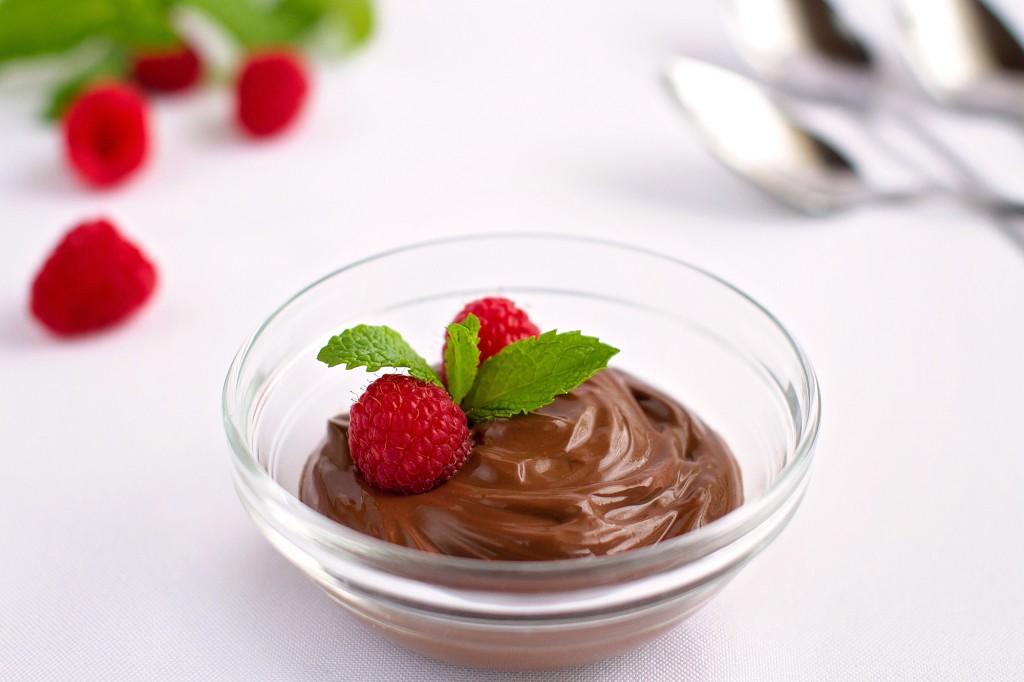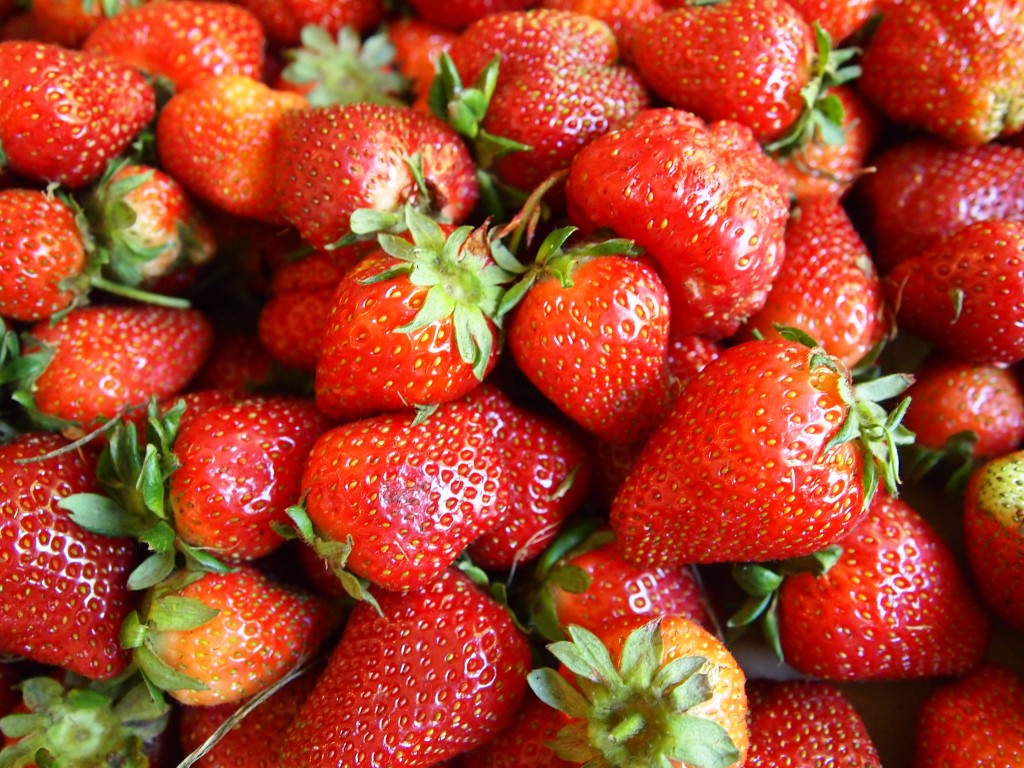
Supporting a Healthy Gut: The Benefits and Drawbacks of FODMAPs
Photo Credit: Julien Haler, via Flickr Creative Commons
FODMAPS, a specific class of carbohydrates, are gaining attention in functional and lifestyle medicine, especially among people experiencing GI issues such as abdominal bloating, flatulence (gas), diarrhea and functional gut disorders (FGDs) like Irritable Bowel Syndrome (IBS). More recently FODMAP foods have been recognized for their impact on the gut microbiome.
Eliminating and reducing specific foods are a promising approach to alleviating symptoms in those with IBS
To learn more about the connection between your gut microbiome and heart health, we recommend Ornish Living’s Your Gut and Heart Connection and Food for a Happy Gut and Healthy Heart.
FODMAPs is an acronym for Fermentable, Oligo-, Di- and Mono-saccharides (saccharide is another word for sugar) and Polyols (sugar alcohols). The specific types of saccharides/sugars are fructose, lactose, fructans, and galactans. These sugars are commonly found in dairy and a variety of plant foods such as apples, watermelon, pears, mangoes, broccoli, cauliflower, garlic, onions, chickpeas, soy and grains such as wheat and rye. Because of the increased focus on FODMAPs, some people experiencing GI challenges are left wondering whether they should reduce or eliminate foods that contain them.
Who Should Eliminate FODMAPs?
Because digestive enzymes and stomach acid do not break FODMAPs down well, they arrive in the small intestine partially undigested and unabsorbed. The degree to which they are absorbed and digested varies among individuals.
Some people don’t have adequate enzymes to breakdown certain FODMAPS. For example, if you don’t produce enough of the enzyme called lactase that breaks down lactose (the sugar in dairy), this will go undigested. Other people are not able to effectively absorb these carbohydrates such as fructose, so the fructose passes through unabsorbed and undigested.
These undigested saccharides/sugars are like fast food for our gut bacteria, which can promote the growth of a healthy gut microbiome. In large amounts, however, they can cause GI discomfort, gas, distention, bloating, and possible diarrhea. Research is finding that eliminating and reducing these specific foods are a promising approach to alleviate symptoms in those with IBS or other functional gut disorders (FGD).
This is also why dietary approaches such as the paleo or ketogenic type diets often restrict some of these foods for people with IBS. Restricting healthy produce, legumes and grains, however, is not the answer because it limits nutrients and fiber and it diminishes the good gut bacteria, which is advantageous for long-term gut health.
The Benefits of FODMAPs
New research is emerging showing that enhancing the growth of good bacteria and changing the biodiversity of your gut microbiome, may potentially improve IBS, FDS and inflammatory bowel diseases (IBD). Gut bacteria thrive on many of the FODMAP foods, especially fructans such as the pre-biotic inulin and oligosaccrides. These foods are high in fiber, especially soluble fiber, which is digested by gut microbes and helps to support the biodiversity of the gut flora. Biodiversity is the hallmark of a healthy ecosystem. Therefore, people who do tolerate FODMAPs should understand that they could be a valuable part of a healthy diet.
FODMAP Friendly Foods
The below list includes FODMAP foods and FODMAP friendly foods. The friendly foods are those that are well-tolerated by people with a limited ability to digest or absorb FODMAPs. Some people may have multiple intolerances, or it may be isolated to one category such as lactose intolerance. It often takes some experimentation that involves food elimination to determine which foods and how much of them can be tolerated. We recommend discussing this with your doctor and working with a registered dietitian with experience in FODMAPS to best support this process.
Foods High in FODMAPs
- Lactose: Milk (from cows, goat, or sheep,) yogurt, ice cream, custard, soft cheese such as cream cheese, ricotta, cottage, mascarpone
- Fructose: Fruits: apples, pears, mangoes, and watermelon Dried fruits and fruit juices Coconut. Sweeteners: high fructose corn syrup and corn syrup, agave, honey, fructose. High fructose corn syrup (HFCS)-based products such as: BBQ sauce, ketchup, and pancake syrup and other food/beverages with HFCS such as soda. Alcohol: sherry and port wine
- Fructans: Fruit: watermelon, persimmon. Vegetables: artichokes, asparagus, Brussels sprouts, broccoli, beets, cabbage, chicory, garlic, leeks, onions, shallots radicchio, okra, lettuce, snow peas. Grains: wheat and rye. Added fiber: such as inulin and fructo-oligosaccharides in packaged foods such as granola bars and probiotic supplements. chicory dandelion, pistachios
- Galactans: Legumes: Chickpeas, lentils, kidney beans and soy. Vegetables: broccoli
- Polyols: Fruits: apples, apricots. blackberries, cherries, nectarines, pears, peaches, plums, prunes, water melons, avocado. Vegetables: cauliflower, button mushrooms, green bell peppers, sweet corn, snow peas. Sweeteners: sorbitol, mannitol, xylitol, maltitol, and isomalt.
Food Low in FODMAPs
- Lactose: Lactose-free milk, yogurt cottage cheese, ice cream, Sorbet. Hard cheese such as cheddar, Swiss, Parmesan and mozzarella, brie
- Fructose: Fruits such as: bananas, blueberries, boysenberries, cantaloupe, grapefruit, grapes, honeydew, lemons, limes, mandarin, passionfruit, raspberries, strawberries, rhubarb, tangelos. Sweeteners (small quantities) maple syrup, sugar Fruits such as: bananas, blueberries, raspberries grapefruit, grapes, honeydew, kiwi, lemons, limes, oranges, passion fruit.
- Fructans: Vegetables such as: bok choy, bean sprouts, bell peppers, butter lettuce, carrots, celery, chives, corn, eggplant, green beans, tomatoes, potatoes, and spinach. Rice, oats, quinoa, polenta, millet, Gluten-free breads, cereals, and pasta. Spelt bread.
- Polyols: Fruits such as: bananas, blueberries, raspberries grapefruit, grapes, honeydew, kiwi, lemons, limes, oranges, passion fruit
Since all of these foods can be part of a healthy balanced diet, it’s also important not to completely eliminate them, but to work on detecting which foods are causing symptoms and how much you can tolerate.
What has been your experience with eliminating foods that contains FODMAPs?







